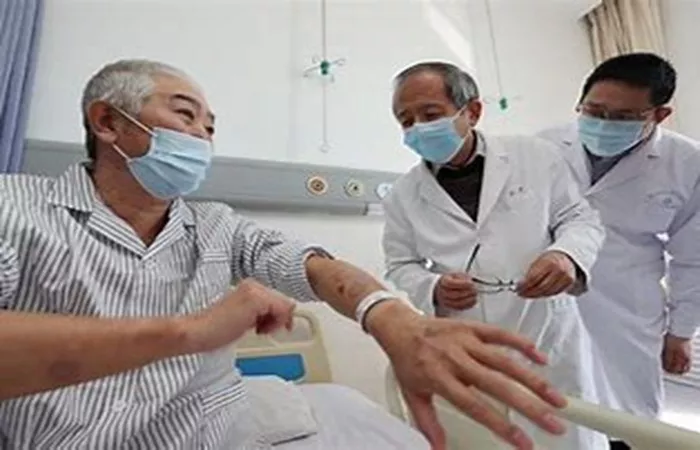Allergies affect millions of people worldwide, ranging from mild seasonal sniffles to life-threatening anaphylaxis. For those struggling with persistent or severe allergic reactions, specialized allergy clinics offer advanced diagnostics, personalized treatment plans, and long-term management strategies. This article explores what a Cure Allergy Clinic provides, including cutting-edge therapies like immunotherapy, expert diagnosis, and holistic approaches to improving patients’ quality of life.
Understanding Allergies: Why Specialized Care Matters
Allergies occur when the immune system mistakenly identifies harmless substances—such as pollen, pet dander, or certain foods—as threats. This triggers an inflammatory response, leading to symptoms like:
Respiratory issues (sneezing, wheezing, nasal congestion)
Skin reactions (hives, eczema, swelling)
Digestive problems (nausea, vomiting, diarrhea in food allergies)
Severe systemic reactions (anaphylaxis)
While over-the-counter antihistamines can help with mild symptoms, many patients require specialized care to identify triggers, prevent reactions, and achieve long-term relief. This is where an allergy clinic becomes essential.
What Does a Cure Allergy Clinic Offer?
A Cure Allergy Clinic is not just about temporary symptom relief—it focuses on identifying root causes, preventing reactions, and providing lasting solutions. Key services typically include:
Advanced Allergy Testing
Accurate diagnosis is the first step in effective allergy management. Clinics use several testing methods:
Skin Prick Tests: Small amounts of allergens are applied to the skin to check for reactions.
Blood Tests (IgE Testing): Measures immune system response to specific allergens.
Patch Testing: Identifies contact allergens causing skin irritation.
Oral Food Challenges: Supervised exposure to confirm food allergies safely.
Personalized Treatment Plans
Every patient’s allergies are unique, so treatment must be tailored. Options may include:
Allergen Avoidance Strategies: Education on minimizing exposure.
Medication Management: Prescription antihistamines, nasal sprays, or epinephrine auto-injectors for emergencies.
Biologic Therapies: Advanced treatments like omalizumab (Xolair) for severe asthma or chronic hives.
Immunotherapy: The Gold Standard for Long-Term Relief
Unlike medications that only mask symptoms, immunotherapy (allergy shots or sublingual drops)modifies the immune system’s response to allergens.
Subcutaneous Immunotherapy (SCIT): Regular injections gradually desensitize the body.
Sublingual Immunotherapy (SLIT): Dissolvable tablets or drops under the tongue (especially for pollen and dust mite allergies).
Oral Immunotherapy (OIT): For food allergies (e.g., peanuts), slowly increasing tolerance under medical supervision.
Asthma and Allergy Comorbidity Management
Many allergy sufferers also have asthma, eczema, or sinusitis. A specialized clinic provides integrated care, including:
Pulmonary function tests
Inhaler technique training
Sinus infection treatment
Emergency Preparedness and Education
For patients with severe allergies, clinics ensure they are prepared for emergencies by:
Prescribing epinephrine auto-injectors
Teaching anaphylaxis recognition and response
Providing allergy action plans for schools/workplaces
Cutting-Edge Treatments in Allergy Clinics
Beyond traditional methods, leading allergy clinics offer innovative therapies:
Biologic Medications
Drugs like dupilumab (Dupixent) target specific immune pathways, providing relief for severe eczema, asthma, and chronic sinusitis.
Oral Immunotherapy (OIT) for Food Allergies
Previously, strict avoidance was the only option. Now, clinics offer controlled exposure programs to build tolerance to foods like peanuts, milk, and eggs.
Telemedicine for Allergy Care
Many clinics now provide virtual consultations for follow-ups, prescription refills, and mild symptom management.
Who Should Visit an Allergy Clinic?
Consider specialized allergy care if you:
- Experience frequent sinus infections, hives, or unexplained rashes
- Have asthma worsened by allergies
- Suffer from food allergies or anaphylaxis
- Find over-the-counter medications ineffective
- Need immunotherapy for long-term relief
The Future of Allergy Treatment
Research is rapidly advancing, with promising developments such as:
Epicutaneous Immunotherapy (EPIT): Wearable patches to treat food allergies.
Gene Editing Therapies: Potential to “turn off” allergic responses.
Microbiome-Based Treatments: Using gut bacteria to modulate immune reactions.
Conclusion
A Cure Allergy Clinic provides more than just quick fixes—it offers science-backed diagnostics, personalized treatment, and innovative therapies to help patients live without constant fear of allergic reactions. Whether through immunotherapy, biologics, or emergency training, these clinics empower individuals to manage allergies effectively and improve their quality of life.
If allergies are disrupting your daily activities or posing serious health risks, seeking specialized care could be life-changing. Don’t settle for temporary relief when long-term solutions are within reach.
Relative topics:
- Picking the Right Cold Medication by Your Symptoms
- 7 Ways to Lower Your Risk of Getting the Flu: Essential Tips for Protection
- 7 Common Early Flu Symptoms: Recognizing the Signs Early

